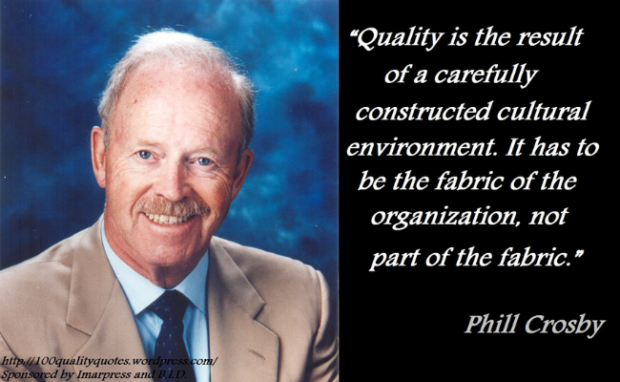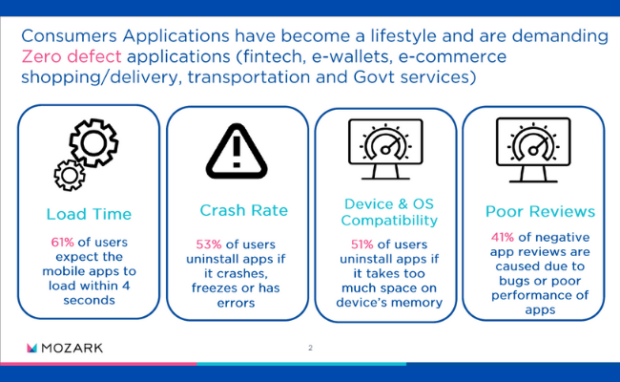‘Zero Defects’ system ensures high-quality PH apps
The Philippine government has been rapidly digitalizing to ensure it meets the challenges of emerging technologies like generative artificial intelligence. That is why the CICC collaborated with Singapore-based AI company Mozark to deploy Consumer Application Monitoring Systems. It will identify the performance issues of government applications to resolve them immediately.
“Zero Defects” may seem like a mere buzzword, but it is a revolutionary concept maintaining the top-tier quality of apps worldwide. CAMS will enable the nation to follow this global standard by letting consumers and businesses detect issues. As a result, the growing technological shift could improve the lives of millions of Filipinos.
This article will discuss the Zero Defects concept to explain how the CAMS works. Later, I will share a few words from CICC Executive Director Alexander K. Ramos, who oversaw its implementation.
What is “Zero Defects?”

Photo Credits: proqc.com
Most people think following “Zero Defects” is another way of saying your product or service is high-quality. Yet, it is a quality assurance concept developed by American author and philosopher Philip Crosby.
The British Library website says ZD came from his bestselling book, “Quality of Free.” It shares 14 principles to help manufacturers maintain high standards for their goods and services.
ZD is in the 9th principle, “Zero Defects Day,” which ensures a company makes an impact and everyone “gets the same message in the same way.” Supervisors must explain their program to people and leave a lasting impression.
Online education platform TutorialsPoint explains that ZD empowers workers to reject products and processes that do not meet standards. Also, it imposes personal accountability to ensure manufactured goods are free from defects.
How can CAMS help the Philippines?

Photo Credits: CICC
President Bongbong Marcos has fulfilled his promise of digital transformation for the Philippines. However, that endeavor must start by improving government services. Data from the Cybercrime Investigation and Coordinating Center says they have the following issues:
- Load time: 61% of users expect the mobile apps to load within four seconds.
- Poor reviews: 41% of negative app reviews are due to bugs or poor performance of apps.
- Crash rate: 53% of users uninstall apps if they crash, freeze, or encounter errors.
- Device & OS compatibility: 51% of users uninstall apps if they occupy too much space on their device storage.
Zero Defects focuses on manufacturing but could improve other sectors like the government. The Philippines chose this standard to prove to citizens that their government’s systems serve their needs.
The CICC says ZD is especially important for transportation, financial technology (fintech), e-wallets, e-commerce delivery and shopping, and other government services. However, it needs a more powerful tool to keep track of its expanding complexity.
You may also like: ChatGPT government applications
Modern devices are connected via the Internet, making it difficult for users to identify the root of problems. Consequently, early error detection requires testing in real-world conditions.
Department of Information and Communications Technology Secretary Ivan John Uy launched the CAMS platform. “This will be a useful tool to identify the performance and the problem with government applications,” he said. Here are its features:
- AI-powered vision enables CAMS to “see” errors and automate event detection.
- Also, it uses robots for multi-stage user journey automation. It could follow the steps to accessing apps by tapping the correct sequence of buttons without human intervention.
- CAMS autonomous kits allow the platform to gather location-based data. As a result, it could highlight areas that may require further assistance.
What are the CAMS’ long-term objectives?

Photo Credits: CICC
CICC Executive Director Alexander K. Ramos added CAMS could help more people understand the options the government provides. “It’s not a warning, but rather it’s a tool. Our objective is to educate the public.”
You may also like: Microsoft fixes face access issues
“People should understand we are not here to put down or to put up anyone. And, you know, we are here for the public to understand that there are options,” Ramos explained. Moreover, the CICC exec stated his agency would release CAMS monitoring results to the public.
“Definitely, all the popular apps will be monitored here as part of the consumer protection of CICC. We are going to monitor the performance up until the public gets their money’s worth,” he underscored.
Conclusion
The CICC partnered with artificial intelligence solutions provider Mozark to launch CAMS. The Consumer Application Monitoring Systems will detect and eliminate errors in government services.
That will ensure Filipinos can rely on these systems whenever they need them. Eventually, the platform will let the people know that the government’s options work.
That could inspire confidence in the country’s digital transformation as more technologies shift our lives. Learn more about those trends at Inquirer Tech.